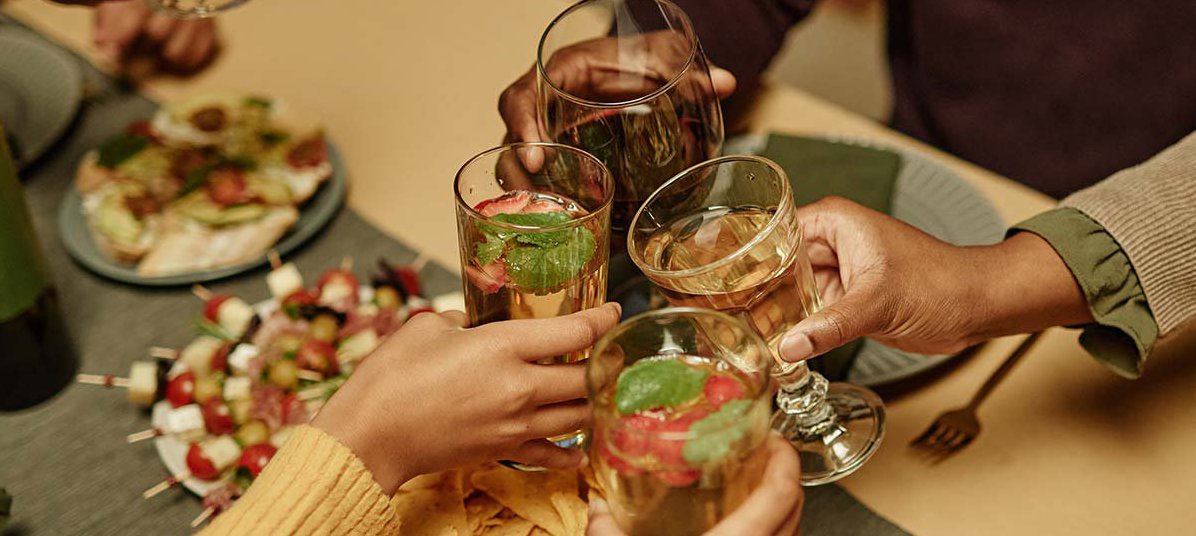Alcohol has a historic footprint as old as mankind and has been a part of society throughout many civilizations. However, it is also a substance and just like any other, a means of intoxication. Therefore, it is quite normal to be curious about it and ask yourself the question: Is alcohol taboo?
From its initial appearance in history to the contemporary era, alcohol is by far the only most commonly used substance that is also legal in many countries across the world. Inarguably, it carries numerous health risks and negative impacts that are proven time and time again.
However, taboo has less to do with science and more to do with what people believe in. In a way, even the greatest of things can be taboo, and the most harmful can be socially accepted. Therefore, to understand whether or not alcohol is taboo, you can only find the answer by studying historical patterns and society’s attitude shifts toward alcohol.
Ultimately, there is one common opinion that the majority would agree upon – alcohol indeed raises serious health concerns. Countless studies and reports have revealed high mortality rates due to alcohol consumption.
The scientific evidence says alcohol is dangerous, while some societies argue it is okay. So what is the answer? Is it taboo or not?
Table of Contents
ToggleThe History of Alcohol
As aforementioned, the history of alcohol is just as early as that of mankind. The earliest traces of alcohol were found to be 9,000 years ago. This was the same period in which beer made from barley and grape wine was taking root in the Middle East.
The approximate period for the origin of alcohol was around 7000 – 6600 BCE. It is crucial to take note that an entire team of researchers was on board to explore how far alcohol has dated in history. The analysis required studying the ancient organics and liquids subjected to preservation.
On the other hand, for India, alcohol can be dated to around 2000 and 3000 BC, even mentioned beyond that in their myths. Similarly, the Babylonian wine goddess was as old as 2700 B.C.
Apart from the history in terms of the origins of alcohol. There is little evidence on how it came to being and who discovered it. Perhaps the answer is that someone from each civilization accidentally stumbled upon fermentation and ended up with an intoxicating liquid.
The influence of alcohol may have persuaded them to believe that it holds some spiritual value, as it could not be explained by logic or science back then. It would make sense given the limited knowledge people had back then; it was alcohol that was something leading to spirituality, while the actual consequences and negative impacts made some groups believe it was the devil’s produce.
Alcohol in Contemporary Society

Alcohol’s role in contemporary society remains as it has been throughout history. This only shows one thing: alcohol being a taboo has less to do with the health risks and downside it poses and more to “what the people want to believe.”
Since it is a legal and easily accessible substance in many parts of the world, it has become an integral part of social interactions as well as celebrations.
You’ll often come across it on the holidays, weddings, New Year’s Eve parties, Thanksgiving, and even Christmas.
Nevertheless, the perception is far from uniform. Even though it is readily available, it also is frowned upon because of the health risks and danger to society it poses. There are countless incidents of drunk driving accidents, crimes committed under the influence, and even complete loss of self-control while under the influence of alcohol.
To counter these, world governments and health organizations have implemented certain regulations and awareness campaigns to minimize the risks and hazards posed by alcohol. Yet it cannot be permanently banned as some people link it with relaxation and social bonding.
Ultimately, the position of alcohol in modern society is on a delicate balance between cultural significance and responsible consumption.
Alcohol As a Taboo in Society
When you take a walk through the history of alcohol and how it has been perceived in modern society, there is one clear observation – the downsides of alcohol consumption are numerous and backed by research and empirical data. On the other hand, the only positive sides include the “joy” aspect and just means of escape from reality.
Before jumping right onto whether it is taboo or not, what does taboo even mean? The simplest definition is that it is something that is prohibited or restricted by social or religious customs.
Now, when it comes down to definitions, alcohol is taboo from a religious point of view, but certain societies accept it, but not all. This simply implies those individuals seeking pleasure deem it as a means of relaxation and intoxication. Some would even suggest that it’s merely to help with digestion, but “help” is only required if the natural processes are not as functional as they should be.
Time and time again, alcohol has evolved to meet the product requirements of the passing era. However, it is just like any other substance that has only one effect: intoxication. This is why, even in societies where alcohol is legal, it is still prohibited in public places and before meetings or driving.
The only possible explanation for the acceptance is – the use of alcohol has become something so common that it cannot be immediately shut down completely. Therefore, the only possible solution to the widespread substance use is regulation of policies and the consumption of alcohol in moderation.
Conclusion
When it finally comes down to alcohol being taboo or not, it all depends on what is the definition of taboo and what society is in question. That is to say, in terms of health risks, yes, there are plenty. However, taboo or not is determined only by society.
Therefore, some societies do accept alcohol, and it is legal in several countries; one can say alcohol is only taboo based on which society you’re currently in, as it may not be in another one.

I am a passionate beer connoisseur with a deep appreciation for the art and science of brewing. With years of experience tasting and evaluating various beers, I love to share my opinions and insights with others and I am always eager to engage in lively discussions about my favorite beverage.
















